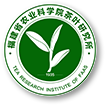Abstract:
Acidic soil is one of the essential requirements for tea growth. Soil pH between 5.0 and 5.5 is considered ideal for the plantations, and an acidity beyond the optimum level can be detrimental for the plant development. Globally, increasing soil acidity due to changes in the environment and human activities threatens the agriculture. This paper reviews the current status on soil acidification at domestic as well overseas tea plantations in the past decades; analyses the main culprits that caused the phenomenon; expounds the adverse effects on the plant growth; and summarizes potential approaches for improvements. A conclusion was drawn from the studies in regard to the direct relationship between soil acidification and continual application of chemical fertilizers. Nitrogen fertilization was seen as the most critical factor in the acidity increase, which resulted in a decline on soil fertility and rise of heavy metal contents at tea plantations with a long term impact on the quality as well as quantity of the tea they produced. Hence, application of organic fertilizers was highly recommended in order to alleviate the undesirable effect brought about by the chemical fertilization and to control the soil acidification. Direction for future research is discussed as a conclusion of this review.




 下载:
下载: